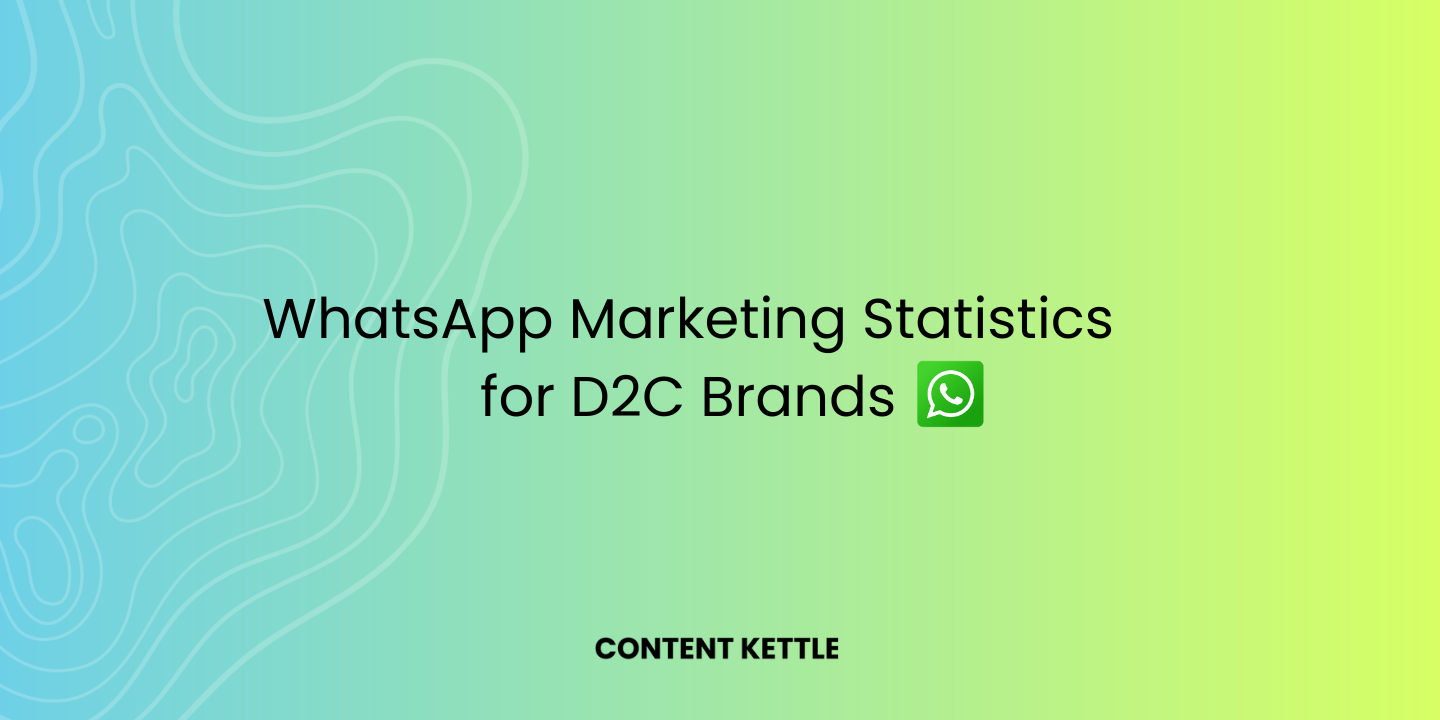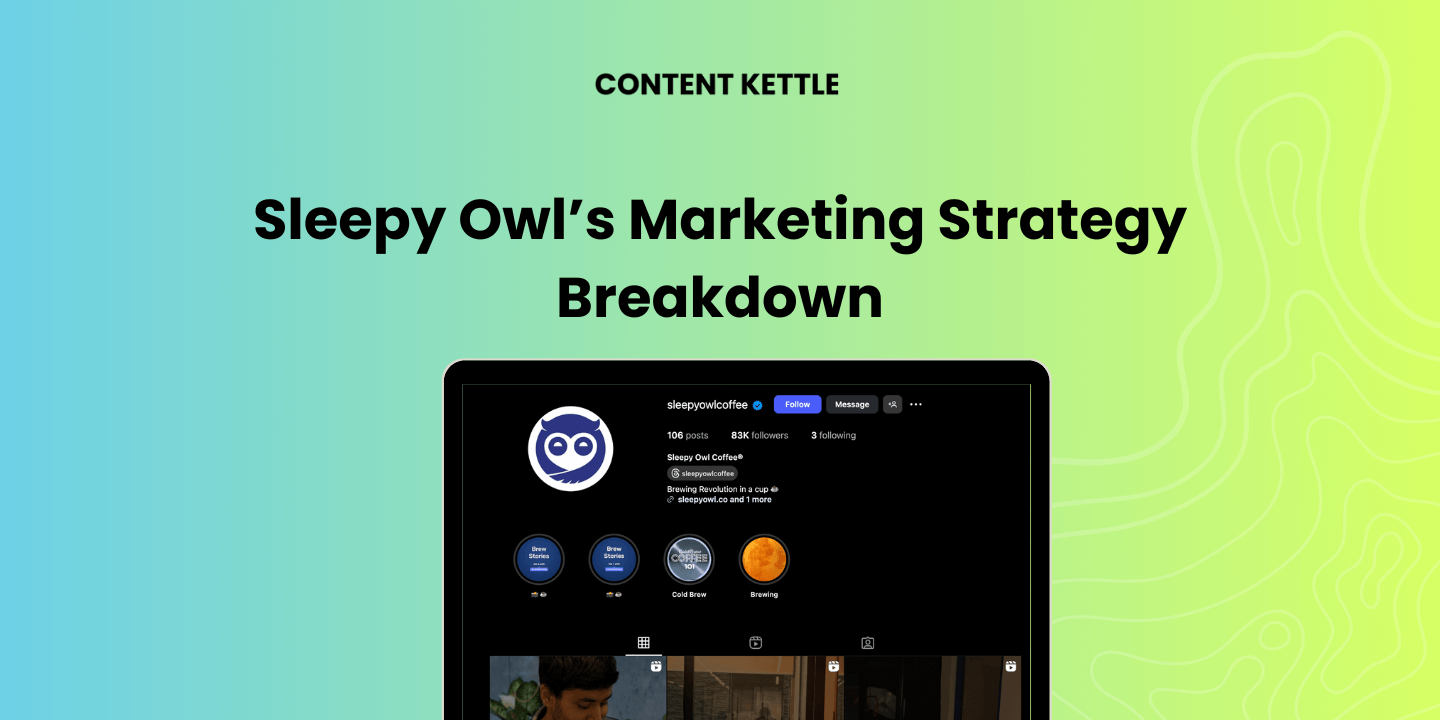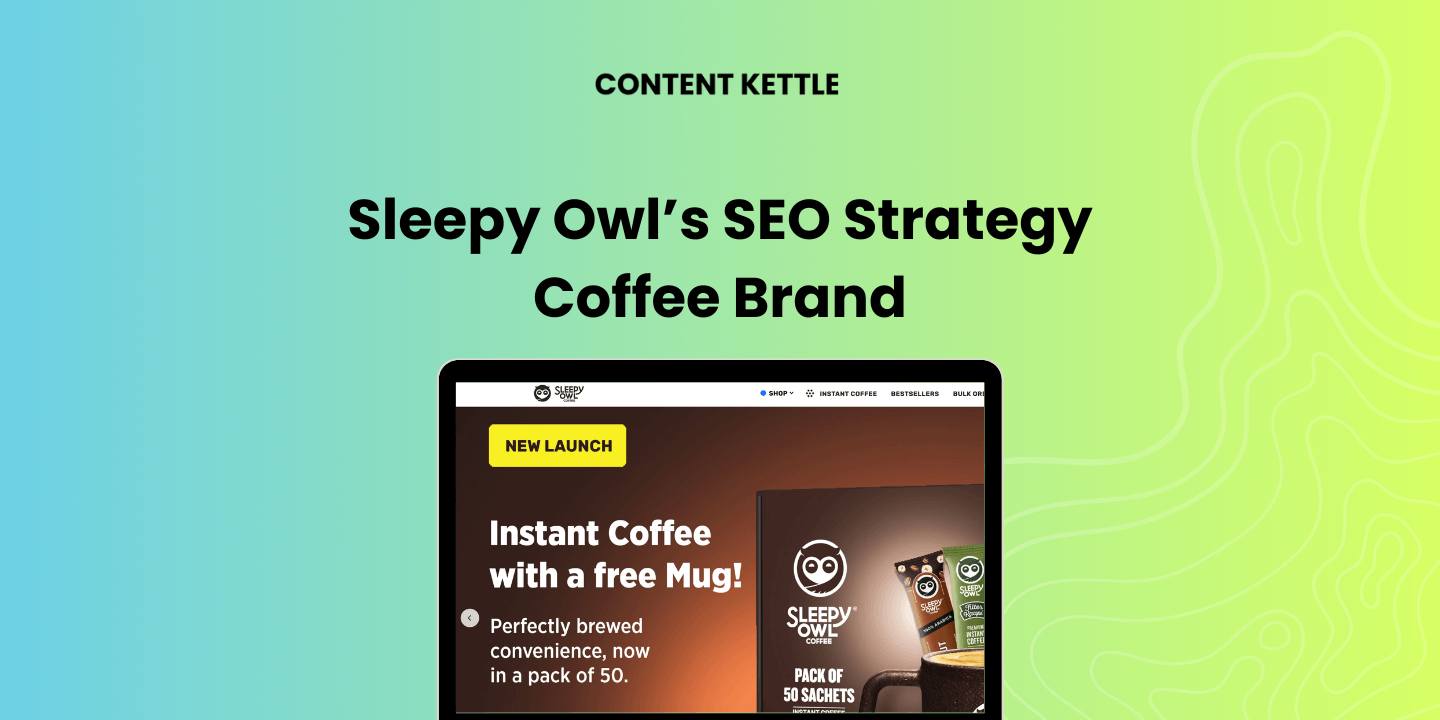Did you know that WhatsApp isn’t just for chatting with friends and family anymore?
With over two billion users worldwide, it has become a marketing tool businesses want to master. Even direct-to-consumer brands have already started using WhatsApp to reach and engage with customers like never before.
These days instant and personalized communication is becoming key and for that, WhatsApp provides a real-time platform that makes customer interactions more meaningful and effective.
Here are some of the key WhatsApp marketing statistics you need to know about.
Whatsapp marketing statistics you need to know
Here’s a breakdown of the essential WhatsApp marketing statistics you should know:
Global Reach and User Engagement
WhatsApp’s big global presence and daily usage make it a key platform for businesses to connect with customers in multiple regions and demographics.
1. WhatsApp operates in over 180 countries and supports over 20 languages.
With over 5 billion downloads on iOS and Android, it’s favored in 180 out of 195 countries, offering businesses an unparalleled opportunity to reach a diverse international audience.
2. More than 100 billion messages are exchanged on WhatsApp every day.
To put that in perspective, this daily message volume is 13 times the Earth’s population of 7.5 billion. While many of these messages are between friends and family, a growing number involve interactions between businesses and customers.
3. On average, users spend 19.4 hours per month on WhatsApp.
That’s roughly 38 minutes per day dedicated to the app. In countries like India, this figure increases to 21.4 hours monthly. This level of engagement indicates that WhatsApp is becoming an integral part of user’s daily routines.
4. Chats and calls are the most utilized features on WhatsApp.
Most users use WhatsApp for messaging and voice calls but frequently share texts, images, GIFs, and videos. Businesses can use these popular features to create engaging and interactive content for their audience.
5. In the Middle East and North Africa, 76% of users prefer purchasing from brands that are on WhatsApp.
This shows how crucial WhatsApp is in the MENA region for businesses. Consumers here expect direct interactions through WhatsApp, making it essential for brands to maintain a presence on the platform.
6. Android users spend an average of 33.5 minutes per day on WhatsApp.
This consistent daily usage offers brands numerous opportunities to connect with users. Understanding when and how users are active can help brands time their messages for maximum engagement.
7. Over 50 million businesses use WhatsApp Business worldwide.
Specifically, 50 million businesses have adopted the WhatsApp Business App since its launch in 2018, including 15 million in India alone. This adoption shows the platform’s effectiveness for businesses looking to market their products and engage with customers.
User Preferences and Behavior
These Whatsapp marketing statistics show what users expect when interacting with brands.
1. Fifty-four percent of users contact businesses on WhatsApp for order tracking and delivery updates.
Additionally, 50% use it for appointments, webinars, and event notifications, while 39% prefer it for customer service. This trend indicates that WhatsApp is becoming a preferred channel for customer interactions, from transactional updates to promotional offers.
2. One-third of users prefer WhatsApp because it offers quicker responses compared to other channels.
Users appreciate receiving answers without the long wait times often associated with website ticket systems. The platform’s support for sharing images, PDFs, and videos enhances the customer service experience, making it more interactive and efficient.
3. In the United States, 34% of users message companies on WhatsApp for service or technical queries.
WhatsApp is becoming a go-to tool for customer service in the U.S., with consumers appreciating its speed and convenience for addressing their service-related issues.
4. Fast responses are crucial: 72% of consumers say that slow replies on WhatsApp discourage them from engaging with a brand.
Consumers value speed. Quick responses help businesses stand out and build trust, while slow replies risk losing potential customers.
5. Over 21% of users directly interact with brands on WhatsApp through click-to-WhatsApp ads on Facebook or Instagram.
Click-to-WhatsApp ads provide an easy way for users to transition from browsing to direct communication, increasing brand engagement and conversions.
6. WhatsApp is most popular among users aged 26-35.
Contrary to popular belief, the highest usage isn’t among teenagers but adults in the 26-35 age bracket, followed by those aged 36-45, and then 15-25.
7. A personalized approach on WhatsApp leads to better engagement, with 31% of users expecting customized offers and messages from brands.
Users expect personalized experiences, so making offers and content based on user preferences is key to bringing engagement and loyalty through WhatsApp.
8. A significant 72% of users report never having a negative experience with brand interactions on WhatsApp.
WhatsApp’s focus on privacy and ease of use means most users have positive brand interactions.
9. Almost half (46%) of users reach out to companies via a “Contact Us” button on WhatsApp.
With nearly half of users preferring this direct communication method, brands can increase customer interaction by having a clear and accessible “Contact Us” button.
Conversion Rates and Marketing Effectiveness
With impressive open and conversion rates, WhatsApp is a goldmine for marketers.
1. WhatsApp messages have an open rate of 98%, far surpassing emails and SMS.
While emails and SMS typically have open rates of around 21.33%, WhatsApp’s impressive 98% open rate means messages are almost guaranteed to be seen. This high visibility makes it an effective tool for businesses to communicate with their audience effectively.
2. WhatsApp achieves a conversion rate of up to 45-60%.
Compared to the modest 2-5% conversion rates of emails and SMS, WhatsApp stands out significantly. Out of every 100 messages sent on WhatsApp, 45 to 60 may result in a conversion, showing the platform’s potential to drive sales and engagement.
3. Two-thirds (66%) of users have made purchases after communicating with a brand on WhatsApp.
WhatsApp’s conversational nature makes it easy for users to connect with brands, building trust and encouraging purchases.
4. Nearly 72% of consumers are more likely to engage with personalized marketing messages on WhatsApp.
Personalized messages are far more engaging. By addressing users by name or making content of their interests, brands can bring engagement and conversion.
5. About 9% of users actively respond to promotional or discount messages on WhatsApp.
While 9% may seem small, with WhatsApp’s large user base, it translates to significant engagement which businesses can tap into.
6. An impressive 85% of consumers are interested in receiving timely and proactive communications from brands on WhatsApp.
Consumers expect timely updates and special offers from brands. WhatsApp is a perfect platform for proactive engagement, which can lead to stronger customer relationships.
7. One in five companies (20%) experiences business growth after proactively messaging customers on WhatsApp.
Proactive messaging on WhatsApp helps businesses to engage with customers better, leading to increased loyalty, satisfaction, and sales.
Chatbots and Automation Impact
Here’s how businesses use WhatsApp to save time, reduce costs, and improve customer interactions.
1. Automating messages on WhatsApp can recover up to 60% of abandoned carts and application drop-offs.
By sending timely reminders and follow-ups, businesses can re-engage customers who didn’t complete a purchase or sign-up process, potentially reclaiming lost revenue.
2. In 2020, 67% of people relied on WhatsApp Chatbots for customer support.
This reliance indicates a growing trust in automated solutions for quick and efficient service. Even organizations like the WHO use WhatsApp Chatbots to disseminate important information.
3. Industries could save $11 billion by implementing WhatsApp Chatbots.
According to a Business Insider report, sectors like healthcare, banking, and retail can reduce administrative costs through chatbot automation, increasing efficiency and customer satisfaction.
4. Businesses are projected to save 2.5 billion hours using WhatsApp Chatbots.
This massive time savings shows the efficiency gains possible with WhatsApp chatbot integration, allowing companies to provide 24/7 customer support without increasing staff workload.
5. Implementing WhatsApp Chatbots can increase lead generation by over 500%.
Chatbots solve the issue of abandoned forms by keeping users engaged through interactive conversations. When designed well, WhatsApp chatbots can increase lead generation by making the process easy and engaging.
6. In 2024, total spending on the WhatsApp Business platform was projected to reach $3.6 billion.
The growing investment in WhatsApp Business highlights its increasing importance. Companies see WhatsApp as an essential tool for customer engagement, particularly in countries with high adoption rates like India.
**Sources: WhatsApp, Statista, Hootsuite, Cooby, Persuasion Nation, Hootsuite, Aisensy
Conclusion
WhatsApp has great potential for D2C businesses that want to connect with customers and increase engagement and conversions.
With its global reach and high open rates, the platform is a game changer for brands aiming to grow in the competitive market.
But to truly tap into this potential, you need a solid strategy.
At Content Kettle, we specialize in creating WhatsApp marketing strategies that resonate with your audience and deliver real results.
Are you ready to make a winning strategy together—reach out to us today!


